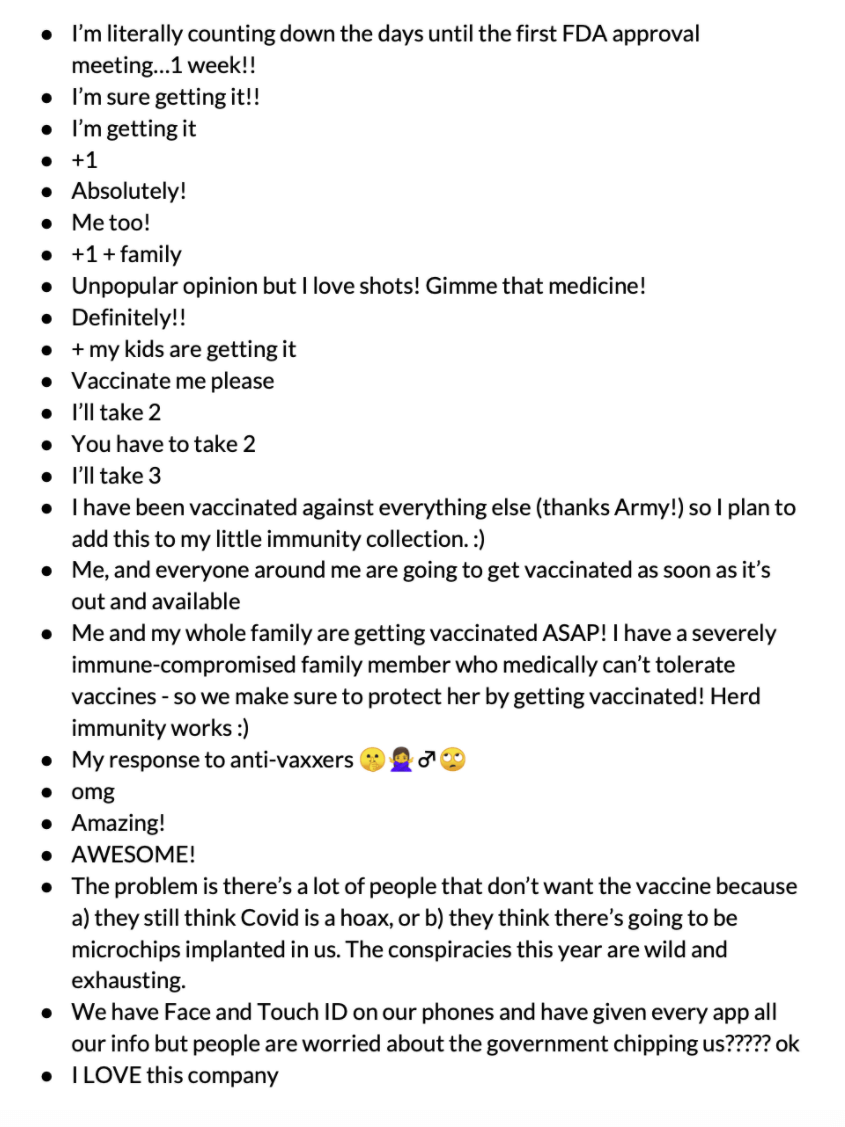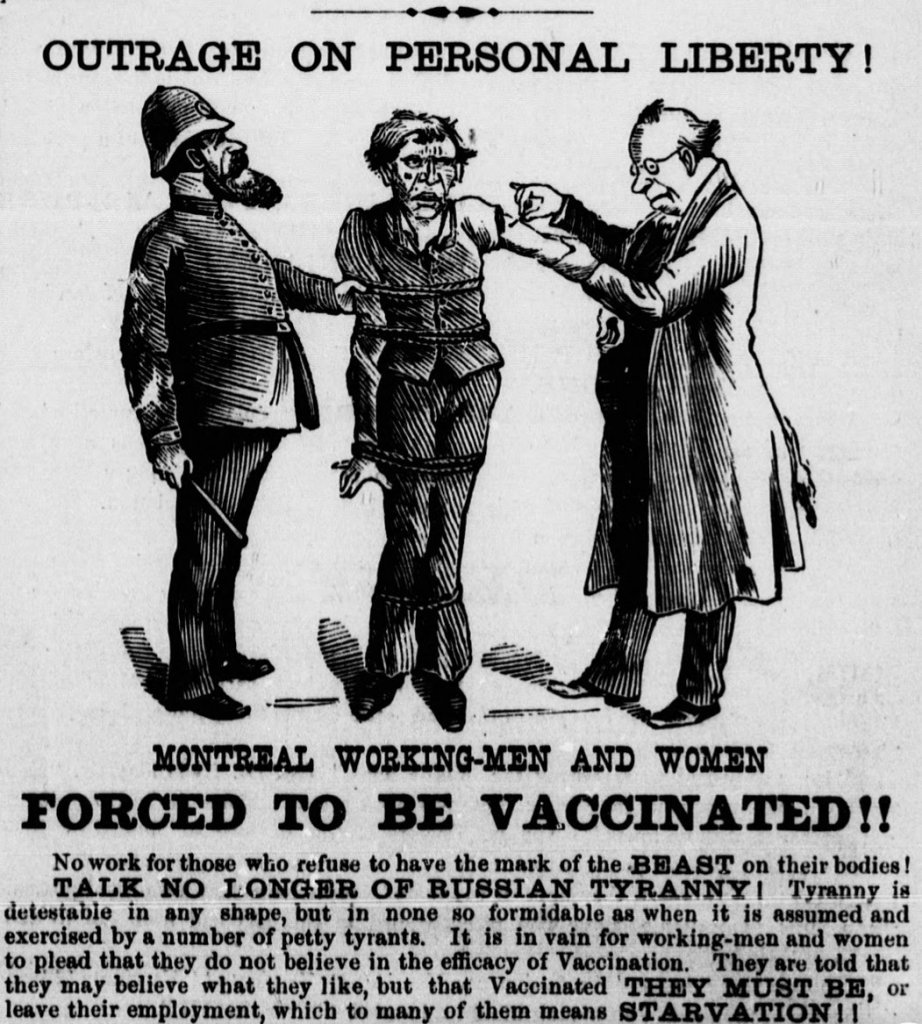“I don’t know about you people,” declared Gavin Belson, the spoof CEO from the hit series Silicon Valley, “but I don’t want to live in a world where someone else makes the world a better place, better than we do!”
Most of the time CEOs presuming to ‘make the world a better place’ deserve to be parodied, yet in 2021 corporations can literally do just that, and they can do it without breaking the bank, indeed without breaking a sweat.
The hard work has already been done by the researchers, manufacturers, and regulators who rolled up their sleeves and crammed 10 years of Covid-19 vaccine development into 10 months. All that’s left is for the rest of us to roll up our sleeves and get jabbed.
Yet many say they won’t, and that’s where corporate responsibility comes in: A corporate directive, coupled with educational sessions, can inject the urgency and reassurance needed to move the needle. With Covid-19 killing at a rate of 500 people per hour, a sense of urgency is just what the doctor ordered.
Anti Anti Vaxxers
In 2020 the World Health Organization listed distrust of vaccines as one of the “10 biggest global health threats of the decade”.
The anti-vaxxers have been growing louder in recent years, but while Covid-19 may be a novel coronavirus, their arguments against its vaccine are anything but.
An 1885 pamphlet, for example, cited extensive pseudoscience to support the proposition that smallpox isn’t really that bad, while the smallpox vaccine really is.
Codswallop.
Almost a century after that publication the vaccine eradicated the virus, but not before that grim reaper claimed a mind-boggling 500 million more lives.
Nowadays it’s easy to forget how much we owe to the vaccination programs that came before us. One hundred years ago America registered about 200,000 annual cases of diphtheria; by the early 1980s that had fallen to 3. In the same period, whooping cough cases fell from 1.1 million a year to just 1,500. Before vaccines, 20,000 Americans a year got polio; by the 1980s that number was zero.
But vaccines only work if we get vaccinated, and hard earned gains are easily squandered.
In 2000 the World Health Organization declared measles eradicated from the United States, and the measles vaccine is estimated to have saved 21 million lives in the 20 years since. Yet because anti-vaxxers spurned the measles shot, the US suffered a fresh outbreak of measles in 2019, forcing New York and Washington to declare a state of emergency.
Which brings us to the Covid-19 vaccines
According to a Gallup poll, one in three Americans wouldn’t take a Covid-19 vaccine if it were available free of charge, while a Harris poll found half wouldn’t take a vaccine developed outside the U.S.
That’s no way to end a pandemic.
Of course, not everyone with concerns about the Covid-19 vaccines is a card-carrying anti-vaxxer. The unprecedented timeline in which these vaccines were developed, and the unfamiliar technologies — like mRNA — upon which some are based, raise real questions.
Happily, these questions have real answers.
The data on the safety and efficacy of the Covid-19 vaccines is extensive, and increasingly available in easily digestible form.
Now—in the days/weeks/months before a vaccine is available—is the time for well-intentioned hesitators to resolve their hesitation; and companies can provide a much-needed forcing function. With over ten thousand dying of Covid-19 every day, vague skepticism just won’t do.
Governments are—correctly, we think—loath to force people to be vaccinated. But companies can do what governments cannot.
We—employers—are at liberty to ask employees to comply with safety-at-work rules, and the Covid-19 vaccination should be one of these (with accommodations for rare medical conditions, and even rarer religious strictures). Coupled with educational resources, broad corporate mandates can change the timeline for ending the pandemic.
Shortening the pandemic by 3 months would save one million lives.
Why is it not enough for just the people who want the vaccine to get one? The numbers. The vaccines are amazingly effective, but not perfectly so. For every 20 people vaccinated, one or two will remain at risk.
Herd immunity adds a second layer of protection, dramatically lowering residual exposure. Given the dislocation Covid-19 has wrought, we think belts and braces may be needed to ensure that those most exposed can walk around the office with confidence.
Why don’t we require the chickenpox shot? Or the polio vaccine? The fact pattern. Should another contagion reach pandemic levels, shuttering our place of work and upending our way of life, even as masses eschew an immunization that could heal all that, it’s safe to assume we’ll require that inoculation too. Conversely, we’ll gladly mothball this mandate once Covid-19 yields its grip on society.
What about enforcement? Isn’t that complex and invasive? No. As with many of our policies, we’ll rely on the honor system, and trust our teams to ensure we safely trade in masks, plexiglass, and social distancing for a work environment that’s 100% vaccinated.
What about pushback? Won’t the team reject the policy? Not if Lemonade’s experience is anything to go by. We found that most people have been reassured rather than unnerved.
After all, 100% vaccination is not just an ask of our people, 100% vaccination is a promise to our people.
The following is the unprompted, unmoderated chat that accompanied the Zoom town hall meeting where we announced our intention to get to a 100% vaccination rate at Lemonade:

While our employees, families, communities, and shareholders will surely benefit from this policy, the blowback from zealots is equally assured. But their tantrum about a purported “outrage on personal liberty” is an old saw, and we mustn’t prolong the pandemic in order to to escape their indignant tweets.

Insisting that people at our workplace take reasonable precautions to avoid bringing a communicable disease to the office isn’t an outrage. The outrage lies in refusing this rudimentary courtesy.
Lemonade is but one employer, and a small one at that. But if others join, the impact on our society could be dramatic. With vaccines at hand this pandemic can be beaten, and it is within the power of corporations to deliver the final blow. #MoveTheNeedle.
As a company built on transparency and trust, we broach politically and ethically charged topics periodically, and are open about our efforts to align our investments and policies with our best sense of what’s the right thing to do. This is post #3 in our ‘Ethics at Lemonade’ series.